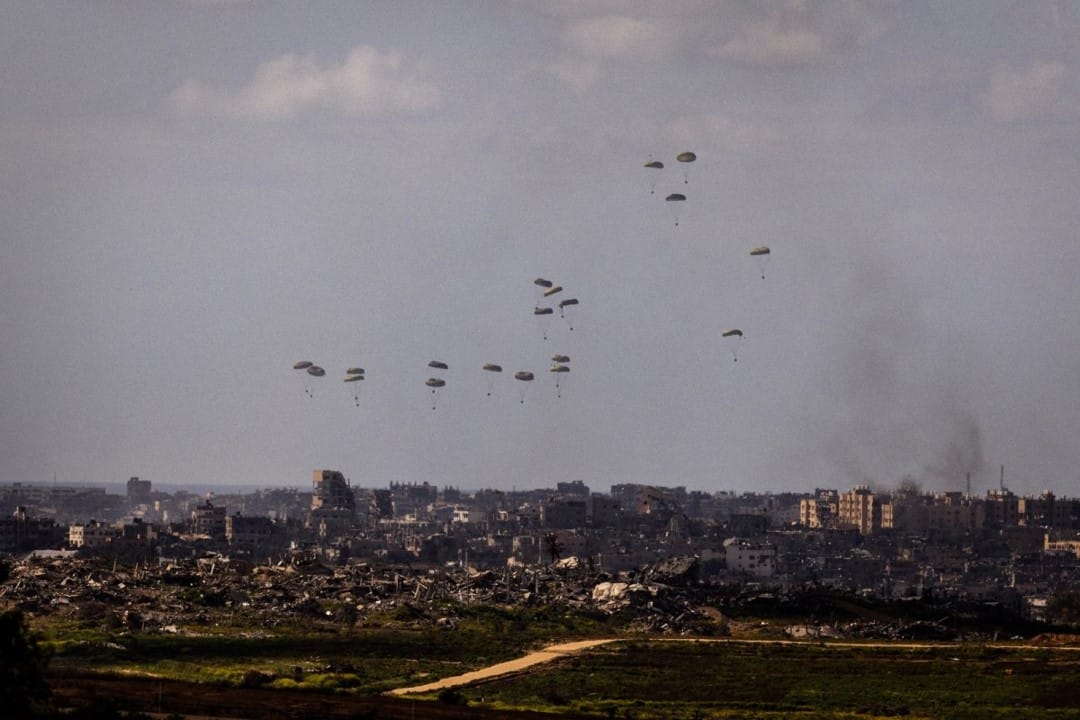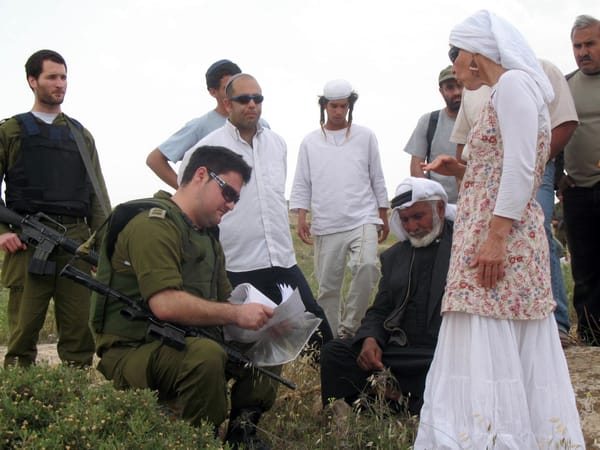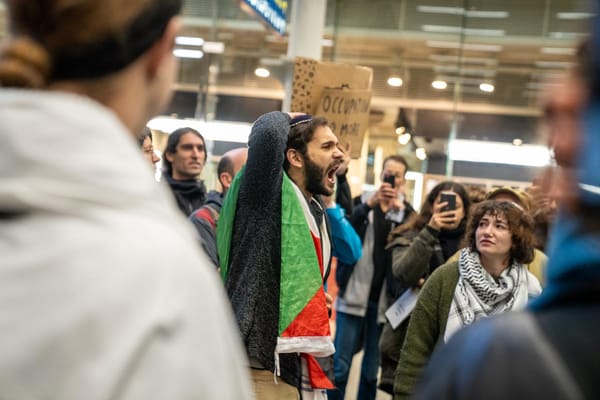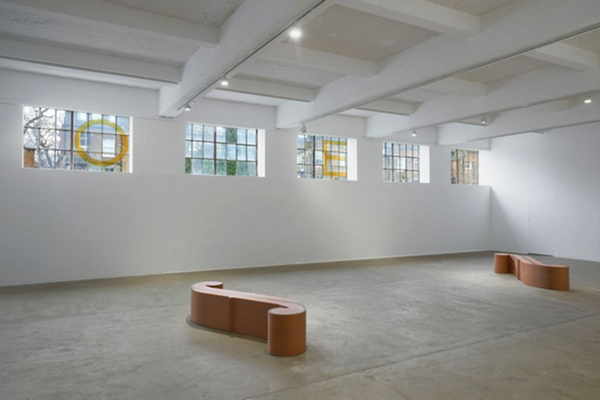Six months of liberal Zionist doublethink
Since 7 October, the principal dividing line on Israel-Palestine has been supporting or opposing a ceasefire. For a faction accustomed to taking the middle ground, that has posed a unique dilemma.

It has been six months since the atrocities committed by Hamas-led militants in southern Israel, and since Israel launched its plausibly genocidal campaign of mass killing, starvation and ethnic cleansing in the Gaza Strip. In that time, Israel has all but wiped Gaza off the face of the earth, and in doing so, drawn the ire and rebuke of much of the world.
The incomprehensible death toll, scenes of utter devastation, and stories of malnutrition and disease have horrified the average observer. Already by mid-November, only 19% of Brits were in favour of continued Israeli military action. Protests against the war have been some of the largest mobilisations in British history. Mainstream media outlets are pushing back against Israeli officials like never before, and even prominent conservative commentators like LBC’s Nick Ferrari are calling for a halt to the UK’s arms sales to Israel.
On the flip side, there are those for whom supporting Israel’s brutal onslaught has been a matter of routine. Many Zionists had no hesitation in lending their voices to the war effort, safe in the warped logic that the horrors of 7 October justified everything that followed.
Often, this has meant parotting Israeli government and military officials in their attempts to minimise the humanitarian catastrophe that they have created: casting doubt on the official casualty figures published by Gaza’s health ministry (despite the Israeli army itself relying on those numbers); denying that the Strip’s 2.3 million residents are facing a famine due to Israel’s restrictions on the entry of humanitarian aid; and repeatedly insisting that Israel’s attacks have targeted only militants and their infrastructure, contrary to all manner of evidence.
This blanket denial of Israeli war crimes has served to quiet the consciences of Israel’s most ardent supporters, ensuring their unreserved backing for the war. After all, if it can be argued that the rest of the world is lying, or, failing that, the devastation and casualties in Gaza can all be blamed on Hamas, then what is there to feel guilty about?
But there is another political community whose allegiance over the past six months was less of a foregone conclusion: liberal Zionists.
For a faction accustomed to taking the middle ground on Israel-Palestine and lauding “nuance” as a supreme value, the past six months have posed a unique dilemma. Liberal Zionists are not, for the most part, blind to the reality of how Israel is fighting in Gaza; many even perceive it as an affront to their values. In more regular times, they have no problem qualifying their support for Israel with caveats, asserting their opposition to at least some aspects of its oppressive rule over Palestinians. Now, however, we’re in a moment where all complexity of self-definition has been collapsed into one simple question: Are you for the war, or against it?
Since 7 October, this has been the principal dividing line on Israel-Palestine, and liberal Zionists have been forced to choose which side they fall on. And although some have since shifted their stance, the overwhelming liberal Zionist reaction to the outbreak of war was to justify Israel’s assault and try not to think too much about their discomfort with it.
Squaring the circle
A couple of months ago, my jaw dropped while reading a post by a Facebook friend whom I do not know personally but whose generally thoughtful perspectives I once appreciated seeing on that app. An American-Israeli who works in a prominent Israel education charity, he wrote with astonishing honesty about why, four months into the war, he hadn’t posted anything about the devastation that Israel was wreaking in Gaza.
“I support this war and think it is necessary,” he explained. “I am all too aware that a few miles from me millions of people are living and dying in what can only be described as hell. But I firmly believe that the moral culpability for that hell does not rest with us but with Hamas.”
“That moral calculus doesn’t clear my conscience,” he admitted frankly. “That hell sits at the corner of my consciousness always. And I scrupulously avoid reading about it or looking at images of it, which I am sure is cowardice.”
This was a striking window into one liberal Zionist’s inner struggle to maintain his support for the war in the face of the shame he feels given what that war actually looks like. For him, the answer was quite literally to look away. For others, it is to keep trying to justify the unjustifiable.
In January, Yehuda Kurtzner, head of the Shalom Hartman Institute – a bastion of liberal Zionist intellectual thought in the US and Israel – wrote a piece in The Forward in which he expressed remorse for the “thousands of Palestinian deaths [and] incalculable destruction in Gaza”, but insisted that he “cannot say personally whether the Palestinian death toll demands an end to this war”. All he can do, he said, is “pray for there to be fewer deaths going forward”, while calling on others to “support Israel’s fight.” Three months and tens of thousands more dead Palestinians later, Kurtzner does not appear to have revised this stance.
J Street, often considered the exemplar of American Jewish liberal Zionism, took a similar position in the wake of 7 October, refusing for months to oppose the war. That decision, it was reported in the New York Times this week, has torn the group apart internally, leading to several employees quitting and donors turning away. It took until late January for the organisation to call for an end to hostilities — a few weeks after American for Peace Now became the first Zionist group in the US to do so — and until last month for it to actually use the word “ceasefire”.
It has been a similar story with J Street’s British counterpart, Yachad. In the first weeks of the war, the group called on MPs to help “de-escalate”, but not end, the war. At the start of November, by which time Israel had already killed nearly 9,000 Palestinians, Yachad amplified a milquetoast statement titled Our Jewish Values that rabbis and other communal leaders signed; it expressed anguish at the loss of life in Gaza but didn’t call for it to stop. Later that month, the organisation characterised “the ceasefire issue” as “an unhelpful litmus test.”
It took Yachad until December to call for an end to the war, and, mirroring the delay of J Street, until February to use the word “ceasefire” for the first time in any public communications. This came in a tweet celebrating the release of two Israeli hostages from captivity – while saying nothing about the more than 70 Palestinians killed in bombings as a “diversion” to enable that rescue operation.
Others, like the co-leads of Progressive Judaism in the UK, still can’t bring themselves to call for an end to the war, even after six months. “A war can be just and yet carried out in ways that go beyond what is acceptable, in international and Jewish law,” they wrote in Jewish News last week, but stopped short of actually taking a stand against it. Harking back to the Our Jewish Values statement that they co-signed in the first weeks of the war, they added: “We began with our clear commitment to Israel and Zionism. As time has passed, not only has this commitment been reaffirmed, it has been strengthened.”
Zionism is as Zionism does
Regrettably, there are countless more examples of liberal Zionists coming down on the pro-war side of the post-7 October dividing line. But there also appear to be many who have made the opposite choice. J Street’s internal strife provides evidence of this clash playing out inside a major liberal Zionist organisation, while the record-setting mobilisations of Jews in solidarity with Palestinians in the US, UK and elsewhere attest to at least some degree of radicalisation among those forced out of their middle-ground comfort zone (Zionists are even complaining that many of the Jews they find on dating apps are foregrounding their solidarity with Palestinians).
While it is certainly better to join the masses calling for a ceasefire late rather than never, and every day that Israel’s assault is shortened will spare scores of Palestinian lives, it shouldn’t be forgotten that some of the most prominent liberal Zionist thinkers and organisations failed for months to object to one of the deadliest military campaigns of this century. In doing so, they have shown once again that however liberal its adherents may be, Zionism is inherently rooted in the idea that Palestinian lives are worth less than Jewish-Israeli ones.
When the war in Gaza eventually ends, the full scale of the horror becomes clear, and the survivors are left to pick up whatever pieces remain of their obliterated homes and shattered souls, there will surely be liberal Zionists who will wonder how on earth they could’ve ever supported it. For the Palestinians who’ve lost everything, this belated soul-searching won’t mean much. ▼
Ben Reiff is an editor +972 Magazine and Vashti.




